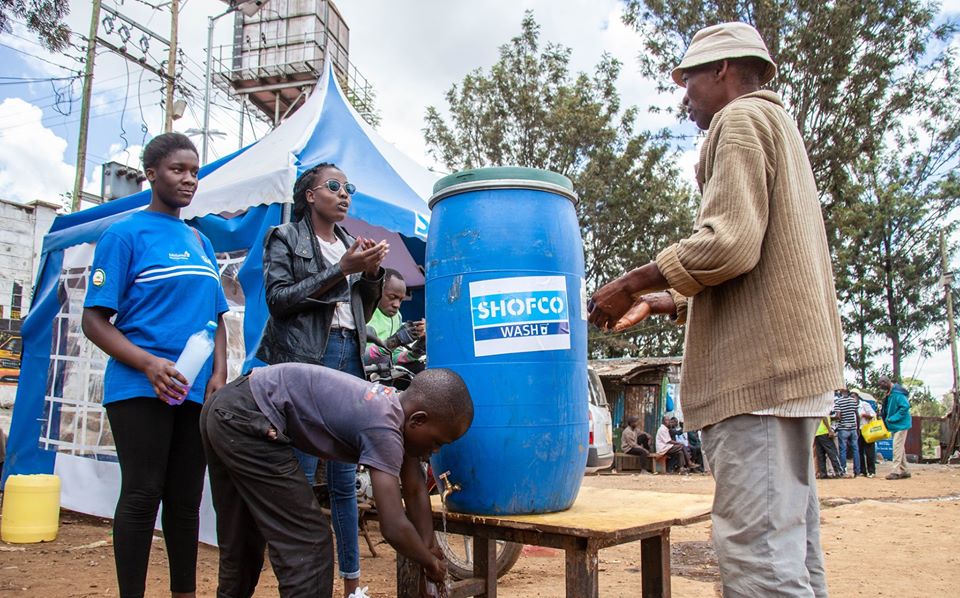- About
- Topics
- Picks
- Audio
- Story
- In-Depth
- Opinion
- News
- Donate
-
Signup for our newsletterOur Editors' Best Picks.Send
Read, Debate: Engage.
| August 01, 2015 | |
|---|---|
| topic: | Economic Opportunity |
| tags: | #banana farming, #hair extension, #Kenya |
| located: | Kenya |
| by: | Bob Koigi |
The company, made up of three engineers, has been responding to an incessant cry by farmers who have nowhere to discard their banana stalks after harvest.
Kenya has approximately 390,000 smallholder banana farmers with more than 80,000 hectares being under its cultivation. A hectare accommodates 1200 banana plants translating into 96 million plants after every harvest according to Banana Growers Association of Kenya. But the primary purpose of growing bananas is to harvest the fruit. With the bulk of banana stems piling up in farms after harvest, farmers have been left with an eyesore. The bulk of the farmers discard the stems. The innovative ones however have found use for them, making livestock feed, manure or in handicraft by making innovative products like banana stalk handbags and table mats.
Still the banana stalk menace persists.
In the same country, a burgeoning middle class of women, keen on their image, and with an affinity for spending have expressed insatiable demand for products ranging from beauty, skin care and hair. In fact, according to a consumer survey by global payments technology company Visa dubbed KenyaWomen’s Money Habits Survey 2013, personal care is the second most important component of Kenyan women’s lives after food.
And the personal care seems to be particularly concentrated in the hair, with global hair care giant L’Oreal putting the Kenya’s hair industry at over $200 million. This is a trend common with women of black descent with a 2014 study by market research firm Mintel group showing that women of African descent are willing to spend on average thrice the amount that Caucasian women use on hair.
It is this gap that the three Kenyan engineers have sought to close. “This is the perfect synergy and it is promising to create a win win situation for two of the largest groups in the country; our farmers who are earning from selling the banana stalks and the women who it now means can get weaves, wigs and hair extensions at a cheaper price since most of them are imported,” said Kenneth Chelule, the man behind the concept and the programme lead. Artificial hair in Kenya costs up to $800.
Though at its infancy, the project is training banana farmers by putting them into groups, getting them to collect banana stems from the various farms and extracting the fibre which they then sell to the company. The concept means that farmers can still earn income from the banana stalks when market for the fruit disappoints.
While Chelule is a bio engineer, his business partners, Agnes Kisoryo and Anne Mburu are textile engineers, a perfect match that ensures that quality control is enhanced when making the final product. “We haven’t hit the market quite because we are still exploring the best way we can make a grand entry. We already have the hair extension from the banana stalk but we anticipate an overwhelming demand once we release it in the market so we need a good plan,” Chelule added.
The banana stalk hair extension which is trademarked as ‘Dame’ meaning young lady, is bio degradable giving it a competitive edge over the synthetic ones which have been blamed for their adverse effects on the environment. “We are modeling this initiative as a green venture in trying to heal the problem of disposal therefore we have to be keen on green disposal mechanisms which informed our embracing the banana stalks hair extensions,” said Chelule.
The roaring success of the banana stalks hair extensions is now inspiring the trio to explore other products they can make with the banana stalks. Already they have already made banana candies from the inside sheet of the banana stem, which they also hope to introduce to the market.
And to complement these efforts, they are now toying with the idea of delving into the manufacture of bandages using the banana stem to address the biting shortage of one of the most important products in the medical field. “It is such a shame that at this time and age the country still struggles with lack of bandages. The millions of banana stalks lying idle in farms across the country is a sure bet to addressing this and we intend to pursue it as our next project,” Chelule concluded.
By copying the embed code below, you agree to adhere to our republishing guidelines.
